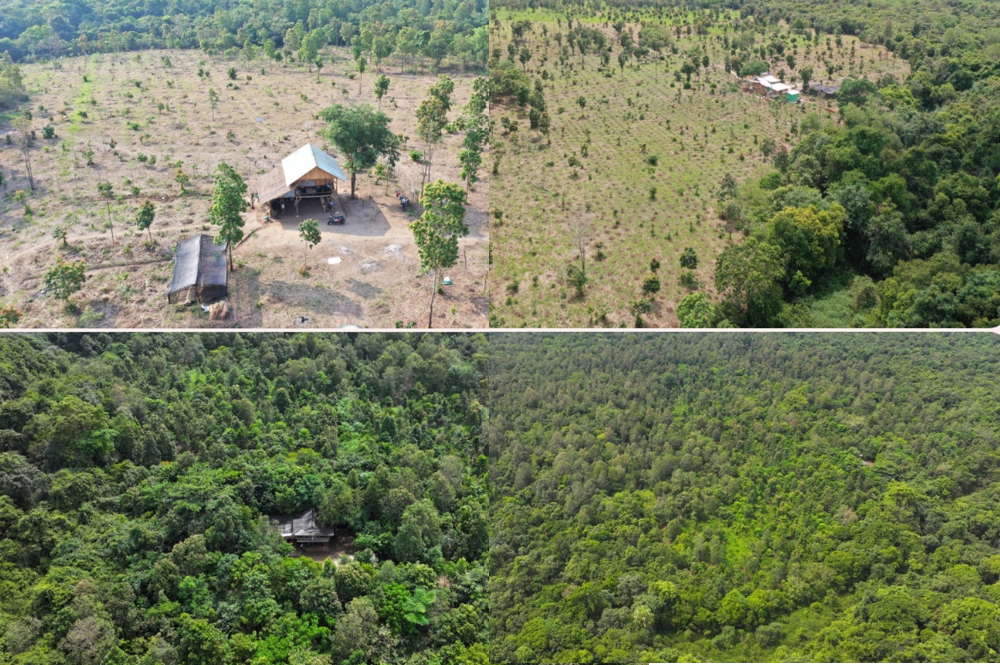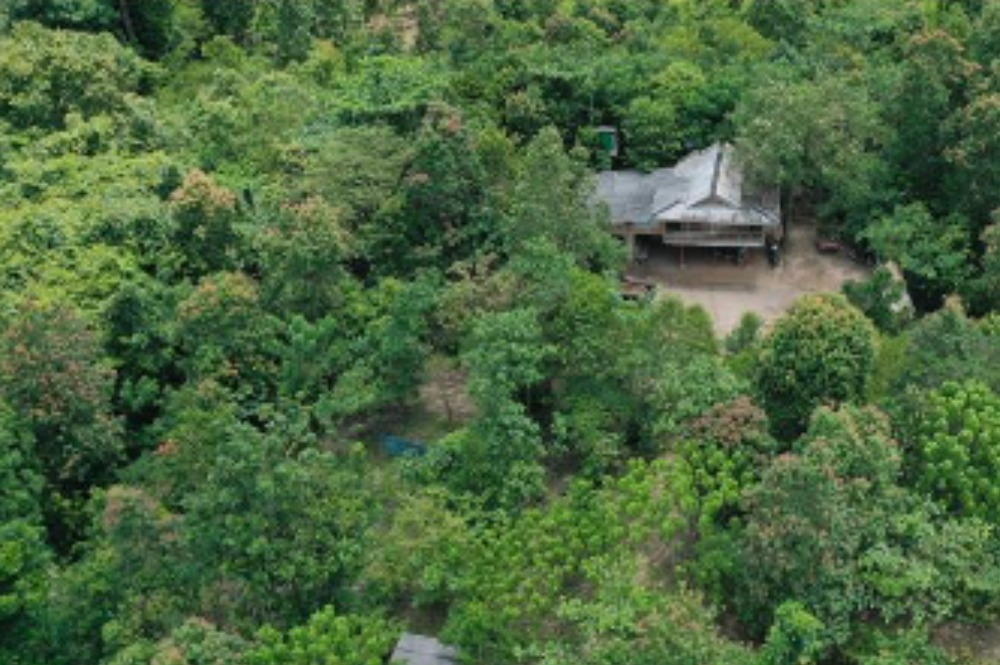This time last year, we were asking you to donate to our Room to Rhino appeal; a campaign raising funds for vital reforestation efforts in Way Kambas National Park, Indonesia. With incredible support from you, our donors, we were able to send £20,060 directly to support these efforts. Here’s an update sharing how your donations have made a difference.
Why is Way Kambas important?
Way Kambas National Park (WKNP) is in Lampung Province, on the southern tip of Sumatra. It’s one of the oldest protected areas in Indonesia and is home to some of the world’s most endangered species, including Sumatran rhinos, tigers, and elephants. Covered by tropical lowland rainforests, swamp forests, and grasslands, it’s an ideal habitat for a diverse array of plant and animal species.
Decades of illegal hunting and logging, livestock grazing, and fires have caused this important area to shrink. Up to one third of the Park’s rhino habitat has been degraded. Yet, WKNP is not only an important, biodiverse ecosystem, but also supports the diets of 10 rhinos living inside the Park within the Sumatran Rhino Sanctuary (each of these rhinos eats around 10% of their weight in plants each day!) Beyond plants for food, however, supporting and protecting this ecosystem is crucial to provide a healthy, resilient home for wildlife (including Sumatran rhinos), for years to come.
How the Room to Rhino Appeal helped
The money you helped raise through our Room to Rhino appeal meant that locally led efforts to restore degraded parts of Way Kambas could keep going in 2024, benefiting the Park, rhinos and – importantly – people.
Through our long-term partner, the International Rhino Foundation (IRF), funds were used to support members of local communities as they replanted degraded land, maintained restored areas, and built networks aiming to reduce encroachment by offering alternative livelihoods.
As for the forest, the images speak for themselves! All three reforestation sits in WKNP have seen huge success. Recent drone footage has revealed a remarkable increase in primary forest cover.

Since the project started (in 2020), 166,467 seedlings have been planted, 146 people have engaged with reforestation activities, and 99 community members have been involved in the alternative livelihood programme. Whilst no rhinos have been spotted in the reforested areas, there have been other exciting guests, including Sumatran tigers (the rarest tiger subspecies), and 75 different bird species, most of which weren’t seen before the programme began!
But the impact doesn’t stop there. Forest fires have long been a huge challenge for the area. Often set illegally to clear space for farmland, the fires spread quickly over degraded forest areas and were extremely damaging. Now, with a more resilient and healthy forest canopy, effective firebreaks, constant monitoring by rangers and stronger relationships with communities, fires have decreased significantly. Between January and June this year, there were only seven fires, compared to 29 in 2023 and 34 in 2022.
What’s next?
The reforestation project will continue for the future, supporting people living in and around WKNP as they watch over the forest and protect the increasing diversity within the restored areas. Alongside our partners, we’ll continue to champion these important activities, boosting this habitat today and in the future, for rhinos and for people.








